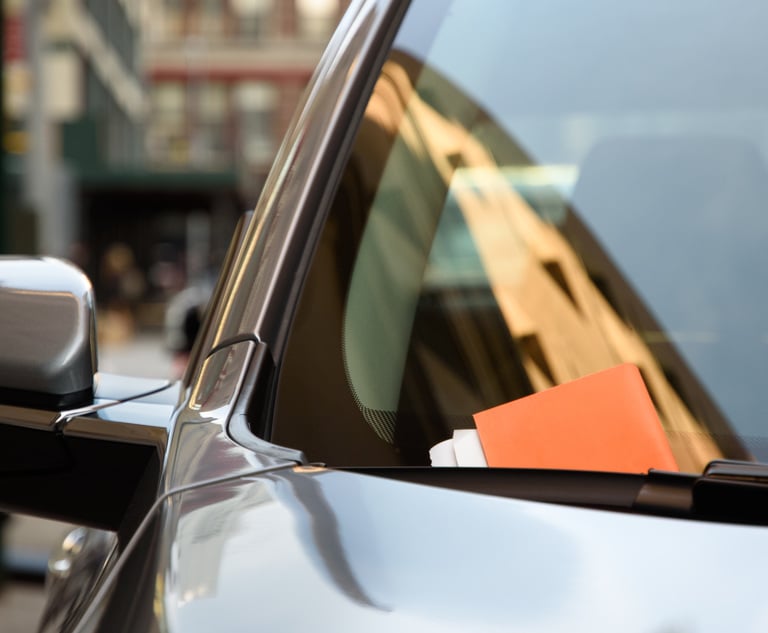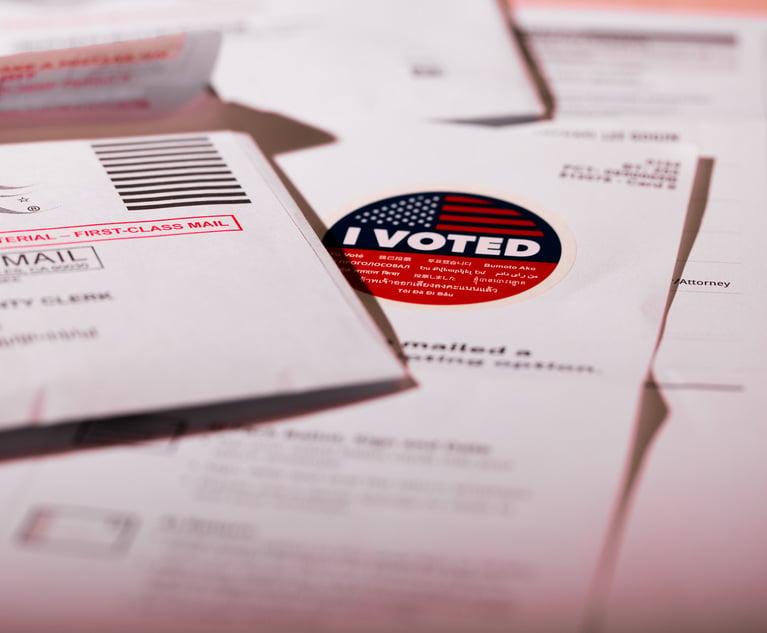Committee On Judicial Ethic

October 17, 2024 | New York Law Journal
Judicial Ethics Opinion 24-39A county court judge may participate in judicial associations with the judges of the local courts over which the judge exercises appellate jurisdiction.
By Committee on Judicial Ethics
3 minute read

October 16, 2024 | New York Law Journal
Judicial Ethics Opinion 24-38A town justice need not disqualify from cases involving tickets issued by his/her co-judge in the co-judge's former capacity as a law enforcement officer.
By Committee on Judicial Ethics
6 minute read

October 15, 2024 | New York Law Journal
Judicial Ethics Opinion 24-36On the facts presented, a judge may not accept a practicing attorney as a volunteer in chambers, where that attorney is currently a judicial candidate seeking election to judicial office.
By Committee on Judicial Ethics
3 minute read

October 14, 2024 | New York Law Journal
Judicial Ethics Opinion 24-35A judge who determines there is a substantial likelihood that an attorney failed to maintain client funds in an escrow account must report the conduct to a disciplinary authority.
By Committee on Judicial Ethics
3 minute read

October 10, 2024 | New York Law Journal
Judicial Ethics Opinion 24-34A supervising judge may further judicial education by (1) distributing a scholarly outline concerning counsel fees in a specialized civil practice area to the jurists under his/her supervision, and (2) hosting a "lunch and learn" program for judges and court personnel which presents outside speakers, provided the overall program is balanced and impartial.
By Committee on Judicial Ethics
6 minute read

October 09, 2024 | New York Law Journal
Judicial Ethics Opinion 24-33Where a full-time judge's former client has contacted the judge to complain about the successor attorney, the judge may suggest the former client retain new counsel, but should not otherwise provide legal advice or assistance.
By Committee on Judicial Ethics
2 minute read

October 08, 2024 | New York Law Journal
Judicial Ethics Opinion 23-243(1) A judge who receives reliable information indicating a substantial likelihood that his/her co-judge has used a seemingly unaffiliated attorney to represent clients on certain cases that originated in their court, and arranged for those cases to be assigned to himself/herself, must report the co-judge to the Commission on Judicial Conduct. (2) If the judge further concludes, based on the information already known to him/her, that this seemingly unaffiliated attorney is an associate of the co-judge or is otherwise undertaking eviction work on behalf of the co-judge, the inquiring judge cannot accept eviction papers filed by that attorney. (3) The judge should consider whether he/she has received information indicating a substantial likelihood that the seemingly unaffiliated attorney has committed a substantial violation of the Rules of Professional Conduct; if so, the judge must take appropriate action.
By Committee on Judicial Ethics
8 minute read

October 07, 2024 | New York Law Journal
Judicial Ethics Opinion 23-242(1) A judge has no ethical duty to investigate allegations from the court attorney's former romantic partner about the court attorney's conduct before working for the judge. (2) Where the court attorney has admitted certain allegations which, in the judge's view, constitute substantial professional misconduct, the judge must take appropriate action. (3) With respect to other allegations of a more personal and private nature, the judge need not take any action unless the judge concludes he/she has received information indicating a substantial likelihood that the attorney has committed a substantial violation of Rules of Professional Conduct. (4) On these facts, the judge has no ethical obligation to report the court attorney to the grievance committee or terminate the court attorney's employment.
By Committee on Judicial Ethics
10 minute read

October 03, 2024 | New York Law Journal
Judicial Ethics Opinion 23-241Where a Lieutenant in the sheriff's office serves on the town board: (1) a town justice is ordinarily disqualified, subject to remittal, in matters involving the Lieutenant and any deputy sheriffs under that Lieutenant's supervision; but (2) the judge need not disqualify if he/she is satisfied that a town board resolution or other legal requirement prohibits the Lieutenant from voting or participating in deliberations on any town court matters.
By Committee on Judicial Ethics
5 minute read

October 02, 2024 | New York Law Journal
Judicial Ethics Opinion 23-240A full-time judge may not perform as a volunteer pianist during a charitable fund-raiser.
By Committee on Judicial Ethics
3 minute read
Trending Stories
- 1Judge Denies Sean Combs Third Bail Bid, Citing Community Safety
- 2Republican FTC Commissioner: 'The Time for Rulemaking by the Biden-Harris FTC Is Over'
- 3NY Appellate Panel Cites Student's Disciplinary History While Sending Negligence Claim Against School District to Trial
- 4A Meta DIG and Its Nvidia Implications
- 5Deception or Coercion? California Supreme Court Grants Review in Jailhouse Confession Case
More from ALM
- Legal Speak at General Counsel Conference East 2024: Match Group's Katie Dugan & Herrick's Carol Goodman 1 minute read
- Legal Speak at General Counsel Conference East 2024: Eric Wall, Executive VP, Syllo 1 minute read
- Legal Speak at General Counsel Conference East 2024: Virginia Griffith, Director of Business Development at OutsideGC 1 minute read



